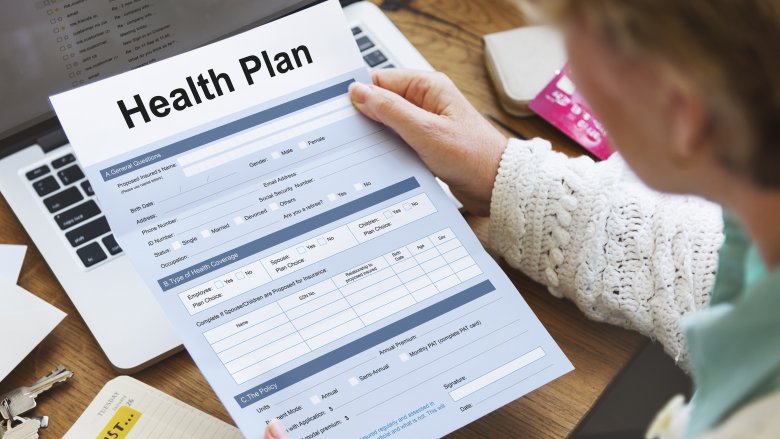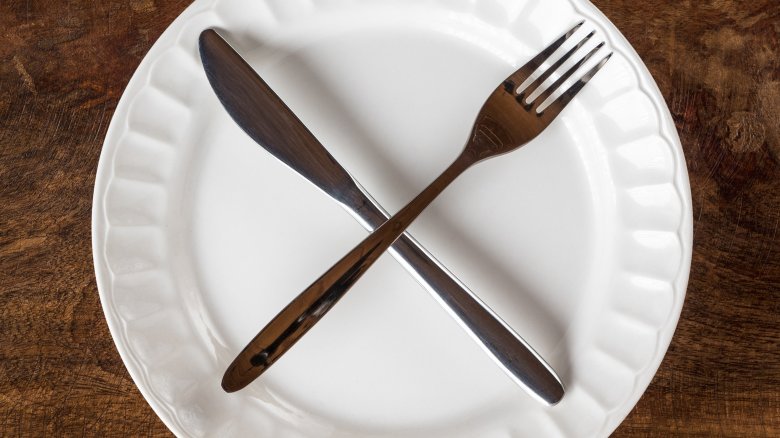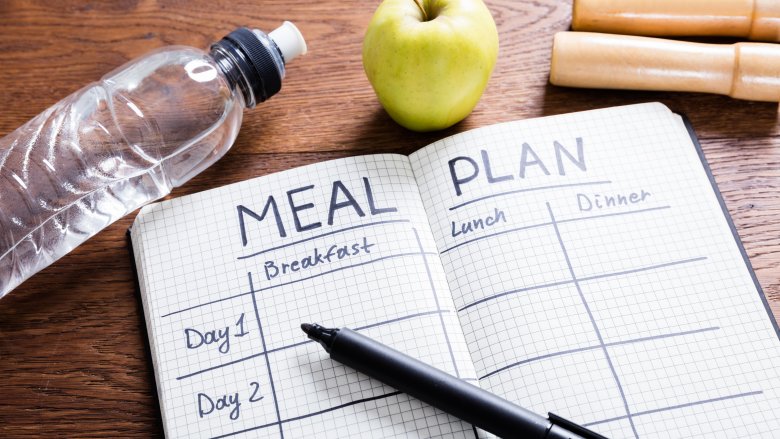Everyday Habits You Didn't Know Are Ruining Your Health
Do you incorporate healthy habits into your everyday life? You probably brush your teeth every day and try to eat healthy food, but just as the right habits will make you healthier, the wrong habits can ruin your health. The problem is, you may not even know what those unhealthy habits are. I went to the experts to find out what you're doing that's ruining your health.
Using plastic containers
Are you one of those diligent people that plans for meals ahead of time? While meal planning will help you stay healthy by not eating out as much, the containers you're using for food storage may have the opposite effect.
Dr. Emelie Ilarde, family medicine physician at Advocate Christ Medical Center told me, "Meal prepping is popular right now and is known to help with portion control. However, most people don't realize that the plastic containers they are storing their food in can actually affect their health negatively."
This is because, as she revealed, many of these containers may contain BPA. As Ilarde explained, this chemical can actually interfere with weight loss because it makes it harder for you to feel full. She recommends that if you are doing meal prep, to double check the container is BPA-free.
Being overly strict with your health plan
While it's important to take care of your health, being overly stringent with your health plan can have negative consequences. Amanda Frick, lead naturopathic doctor for Harvey Health advised allowing yourself some wiggle room.
She suggested choosing the times you'll deviate from your diet plan ahead of time, which will help you avoid self-judgment. She shared, "Your mindset is so important; don't eat your cupcake with guilt. Instead, top it off with a little joy and move on to tomorrow."
Mandy Enright, registered dietitian, nutritionist, and creator of the couples nutrition blog Nutrition Nuptials agreed. She told me, "So many of my clients feel if they make one slip up or didn't make it to the gym on the days they intended to go that all hope is lost. Get rid of the 'All or Nothing' attitude."
Using a mirror to measure your value as a person
Are you guilty of judging your worth by the way you look in the mirror? While it's easy to judge yourself based on your appearance, doing so will cause damage to your self esteem and mental health. Natalie Carey, certified personal trainer and author of Every. Body. Beautiful. told me, "Many women will stand in front of mirrors and grab, pull, poke, and prod the parts of themselves that don't measure up to the standard of a 'perfect body.' Instead of the mirror being used for visual feedback, it has become [a] measuring tool to decide how valuable we are as humans."
She explained this is harmful because our brains are impressionable. Essentially, the more we tell ourselves something, the more likely we are to believe it as truth in the long run.
To remedy this unhealthy habit, she suggested, "Every time you look in the mirror, give yourself a compliment. We compliment others all the time, but saying something nice to our own reflection is very difficult for most women. Look in the mirror and say aloud (or think it really hard) what you like about yourself. Replace every negative comment with a positive one, and you'll rewire your brain."
Starting your day with negative thoughts
Just as negatively judging your body will take a toll on your health, waking up with negative thoughts on your mind is also detrimental.
Dr. Oluchi Immanuel, physician and the founder of Fidem Wellness LLC, explained that waking up with those negative thoughts can actually make your day more challenging than it has to be. "Your mindset is an important factor in how well you will respond to the situations that you face," she shared. Instead, she recommends trying gratitude first thing in the morning. "In the morning, list three things that you are grateful for and three things you will accomplish that day."
Gratitude will help you start your day in an appreciative mood and will also give you a leg up in handling issues that come up later in the day.
Drinking your calories
Whether it's a sugar-laden latte in the morning or a pick-me-up soda in the afternoon, Dr. Immanuel shared that if you're spending your day drinking calorie-filled beverages, you could be elevating your glucose levels, which leads to negative health impacts.
She explained, "This can lead to excessive caloric intake and high glucose levels in the blood. These conditions increase the risk of becoming overweight and developing diseases such as diabetes." Her suggestion? "Instead of sugary drinks, reach for the black coffee and infused water."
Drinking diet soda
If you're thinking, "Well, I only drink diet soda, so I'm good," I have some bad news for you. Even though diet soda doesn't add calories, it may hurt your health in other ways.
Dr. Michelle Robin, chiropractor, author, and holistic healer told me, "Diet soda is ruining your health in several ways. First, the chemicals disrupt your body without providing any benefit. And second, every glass of diet soda you drink is a glass of water you are not drinking."
"Instead of drinking diet soda," she suggested, "drink water." You can make your water taste better by adding lime, lemon, mint, or cucumber. She also suggested drinking half of your weight in ounces of water every day.
Bringing electronics into bed with you
Do you read the news on your iPad and then play on your phone before you go to sleep? If so, welcome to the club. But unfortunately, having electronics in your bed isn't the recipe for a restful night.
Dr. Immanuel shared that a hormone called melatonin regulates our sleep, but bright lights can decrease our levels of melatonin, which in turn can result in sleepiness.
Sleepless nights aren't just annoying, either. They can cause other health repercussions. Dr. Immanuel added, "Poor sleep can lead to many health issues such as decreased concentration, impaired immunity, and heart conditions." She suggested, "Try to avoid electronics and bright lights prior to bedtime. Instead, take a warm bath, read a book, or listen to music to help you wind down."
Skipping sleep
Just as electronics in bed is a no-no, so is skipping sleep. In fact, losing sleep has a negative impact on your entire body. Dr. Robin told me that a lack of sleep can trigger the release of the stress hormone cortisol. It can also prevent our brains from getting the rest and repair they need and can disrupt other systems in our body.
She suggested, "Instead of skipping sleep, plan for seven to nine hours of sleep. For most of us, that means we will have to pick a bedtime based on the time we need to get up. For example, if you need to get up at 6 a.m., and you want to get eight hours of sleep, you will need to be asleep by 10 p.m. Not on your way to bed, actually asleep. Plan your bedtime and give yourself time to wind down."
Looking down at your phone
Let's face it. You probably spend more time looking at your phone than pretty much anything else. But did you know that the way you hold your phone can impact your health? Dr. Robin shared, "Most people hold their phones down, near their chests or in their laps, and they tilt their heads forward to look at the screen. This can put up to 60 lbs. of added pressure on your neck."
She continued, "Your neck muscles are most relaxed and efficient when your head is aligned over your shoulders. When we tilt our head forward and look down, the neck has to hold on to all of the weight and that adds extra pressure and stress."
She suggested that instead of looking down at your phone to scroll on Facebook and Instagram, hold it up at eye level. "If your arm gets tired," she shared, "it is time to put it down and do another activity."
Skipping meals
Lucky for me, I never even consider skipping a meal. In fact, I look forward to them! But if you tend to skip meals in the hopes that you'll lose weight, you should know that doing so may have a negative impact on your health.
Enright explained that eating regularly keeps your energy levels and metabolism where they need to be. While many women who are trying to lose weight think cutting calories and skipping meals is the way to go, Enright said this can actually result in a slower metabolism and even weight gain. Not to mention you'll probably feel "more tired, sluggish, and irritable" when you don't eat enough.
She continued, "Snacks are as equally important as main meals. These are small meals to sustain hunger and energy levels until the next meal. Instead of skipping, plan to eat every two to four hours to maintain energy levels and promote metabolism. Set an alarm or create a personal calendar to make sure meals aren't skipped."
Not putting healthy tasks in your calendar
If you approach each day with the best of intentions, but don't actually put healthy tasks in your calendar, you may be setting yourself up to fail. Enright shared, "Planning is the number one habit that can make or break health goals. Lack of planning for meals, grocery shopping, or attending fitness classes results in panic, frustration, and the feeling of giving up."
She suggested planning out your meals for the week, then making a grocery list and setting aside a day to do all of your food shopping. This allows you to figure out when you have time to prep your meals and then put it in your calendar. She warned that failing to make these plans can lead to ordering takeout or otherwise making less healthy choices.
In addition, she shared that scheduling in your workouts is equally important so that you make fitness a priority.
Skipping breakfast
It's all too easy to wake up late, grab a cup of coffee on your way to work, and then wait until lunchtime to eat. But skipping breakfast is a no-no for your health.
Dr. Jacqueline Ivey-Brown, an internal medicine physician at Advocate Christ Medical Center, told me, "Breakfast provides vital nutrients your body needs to function effectively through the day. Skipping breakfast can cause your body to go into starvation mode, making it more likely that when you do eat, those calories are converted into fat instead of being burned-off."
She also shared that skipping breakfast can lead to overeating later in the day and those extra calories can mean weight gain. You can avoid skipping breakfast by getting up a little earlier or packing a breakfast before you go to sleep. You'll have more energy and you'll be less likely to gain weight.
Washing your hands too quickly
You probably know you need to wash your hands frequently to ward off infection and disease, but how much time do you spend washing your hands each time you do it? If it's less than 15 seconds, chances are, you're not actually getting rid of germs.
Dr. Ivey-Brown told me, "The Centers for Disease Control says that when washing our hands the goal is to do so for 20 seconds to remove the majority of germs. I recommend aiming for 20 seconds of good hand washing with soap and water (one can hum 'Happy Birthday' twice to achieve the goal)."
She explained that spending less time washing your hands puts you at risk for contracting viruses and bacteria that lead to illness. If you're already taking time to wash your hands (which you absolutely should be), you might as well do it right. Instead of rushing through it, take your time to wash completely and thoroughly.
Forgetting to sretch
If you're working out, you're already ahead of the game. But don't skip the all important step of stretching afterward. Failing to stretch can cause injury and prevent you from doing your beloved workouts later on.
Dr. Ivey-Brown explained, "Forgetting to stretch both before and after exercising harms your joints and muscles and puts you at a greater risk for injury. Stretching allows our muscles to gain flexibility and can help muscles to recover more quickly. Without stretching, it's likely you will experience muscle tightness and poor circulation."













